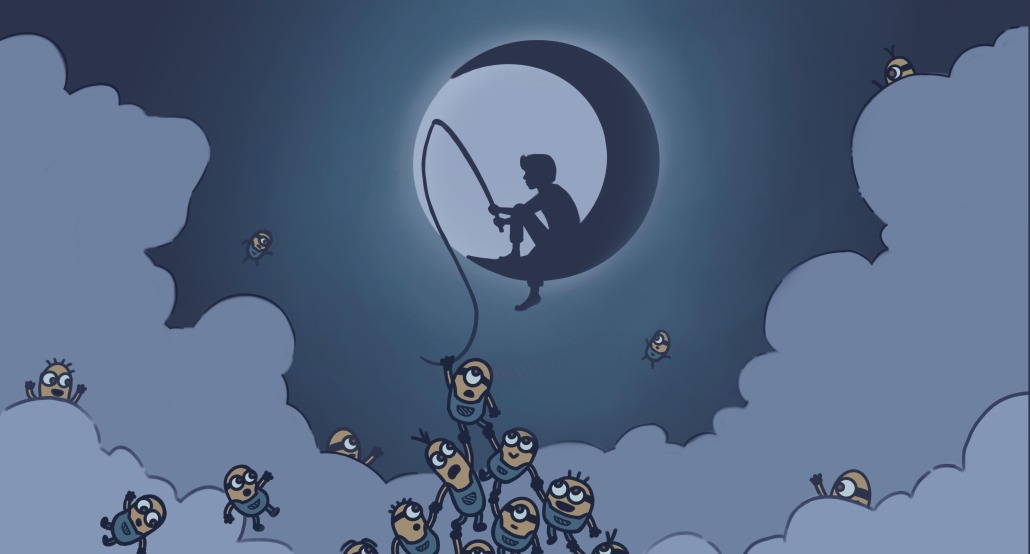BOARDROOMS & BLOCKBUSTERS
The gradual ‘illumination’ of DreamWorks
“The Wild Robot” is coming in just two weeks, and it subverts a troubling trend for the stalwart animation studio.
“The Wild Robot” is coming in just two weeks, and it subverts a troubling trend for the stalwart animation studio.


DreamWorks Animation will release their latest movie, “The Wild Robot” on Sept. 27, based on the bestselling novel of the same name. In 2010, this first sentence would not be much of a surprise. But in 2024, it’s actually a subversive statement.
DreamWorks is owned by NBCUniversal, and for a while, they were animation darlings — legitimate challengers to Pixar. They produced lots of franchises, sure, but that didn’t stop them from making largely intelligent films with surprising ideas. Early franchises like the “Shrek” and “Kung Fu Panda” series became fan favorites and were supplemented by one-off theatrical darlings such as “Megamind” (2010) and “Over the Hedge” (2006).
But something has changed in recent years. Instead of creating franchises with depth and heart, the studio has turned to junk food like “The Boss Baby” and “Trolls” and have recently begun revisiting now-tired franchises like “Kung Fu Panda.”
Their 2020s filmography thus far is defined by a lack of originality. New entries in seven different franchises have been supplemented with just five fresh films, but one of them — “The Bad Guys” (2022) — is now becoming a franchise, with a sequel set for next year.
Additionally, two of those so-called “originals” are book adaptations, and another is a television series adaptation. DreamWorks has technically made five original non-franchise movies. But when given further context, “Ruby Gillman: Teenage Kraken” (2023) is all they’ve got.
DreamWorks is just one of many studios involved in an onslaught of pivoting to sequels and spinoffs in an increasingly volatile age for Hollywood. It is not their fault that this is how the industry moves now. That said, there’s an obvious culprit for this trend away from originality in animation.
NBCUniversal owns another animation studio named Illumination: the undisputed kings of doing the same thing over and over again.
Of the 15 movies they’ve released thus far, four are a part of the never-ending “Despicable Me” franchise, and an additional two belong to the spinoff “Minions” series. Newer franchises such as “The Secret Life of Pets” and “Sing” have two entries each. Illumination has also made two Dr. Seuss adaptations alongside their recent “Super Mario Bros.” movie.
That leaves just two original movies in their entire filmography: “Hop” (2011) — a flop by their standards that they’d probably rather see forgotten — and “Migration” (2023), which is so new that a sequel is still absolutely in the cards.
This trend will only continue for Illumination’s future slate: “Mario” and “Minions” follow-ups are already on the schedule. In a 2023 interview with Variety, Illumination CEO Chris Meledandri confirmed that new installments in the “The Secret Life of Pets” and “Sing” series are not far behind.
But it’s no secret that Illumination recycles and adapts the same ideas constantly. The real key is that their strategy works on a mind-boggling scale. The shared “Despicable Me” and “Minions” series is the first animated franchise ever to reach $5 billion at the box office. That’s over $1 billion more than Tom Holland’s “Spider-Man” trilogy.
This is not to say these franchises are quality or even admired by the general public. The New York Times devastatingly described “Minions: Rise of Gru” (2022) as “spectacularly inconsequential.” But they make a lot of money, so any Universal executive with a pulse knew what to do next.
DreamWorks has now transformed into a sort of faux-prestige version of Illumination, cashing in on previous goodwill and beloved characters to create forgettable sequels such as this year’s “Kung Fu Panda 4.” I have no doubt that “Shrek 5,” slated for release in 2026, will make truckloads of money. But it would be shocking if that sequel made anywhere near the level of emotional impact that, say, “Toy Story 2” (1999) did.
That said, these movies aren’t going for the crown held by “Toy Story 2” and its sparkling 100% score on Rotten Tomatoes. They’re instead aiming at “Inside Out 2” — a good movie, sure, but also the highest-grossing animated film of all time.
However, as Illumination has demonstrated, a franchise does not need to be high-quality or even memorable to drive success at the box office. It’s a comforting strategy for DreamWorks, but it’s a bit of a tragic one for the moviegoer.
After all, “Shrek” (2001) was originally conceived as a pastiche of Disney’s fairy-tale franchise formula — and now its status as a flagship franchise is identical to the works it was parodying. It’s a staggering reversal from DreamWorks; they once promised change, and now are largely providing more of the same.
Sammy Bovitz is a sophomore writing about the business of film. His column, “Boardrooms & Blockbusters,” runs every other Thursday. He is also an assistant arts & entertainment editor at the Daily Trojan.
We are the only independent newspaper here at USC, run at every level by students. That means we aren’t tied down by any other interests but those of readers like you: the students, faculty, staff and South Central residents that together make up the USC community.
Independence is a double-edged sword: We have a unique lens into the University’s actions and policies, and can hold powerful figures accountable when others cannot. But that also means our budget is severely limited. We’re already spread thin as we compensate the writers, photographers, artists, designers and editors whose incredible work you see in our daily paper; as we work to revamp and expand our digital presence, we now have additional staff making podcasts, videos, webpages, our first ever magazine and social media content, who are at risk of being unable to receive the support they deserve.
We are therefore indebted to readers like you, who, by supporting us, help keep our paper daily (we are the only remaining college paper on the West Coast that prints every single weekday), independent, free and widely accessible.
Please consider supporting us. Even $1 goes a long way in supporting our work; if you are able, you can also support us with monthly, or even annual, donations. Thank you.
This site uses cookies. By continuing to browse the site, you are agreeing to our use of cookies.
Accept settingsDo Not AcceptWe may request cookies to be set on your device. We use cookies to let us know when you visit our websites, how you interact with us, to enrich your user experience, and to customize your relationship with our website.
Click on the different category headings to find out more. You can also change some of your preferences. Note that blocking some types of cookies may impact your experience on our websites and the services we are able to offer.
These cookies are strictly necessary to provide you with services available through our website and to use some of its features.
Because these cookies are strictly necessary to deliver the website, refusing them will have impact how our site functions. You always can block or delete cookies by changing your browser settings and force blocking all cookies on this website. But this will always prompt you to accept/refuse cookies when revisiting our site.
We fully respect if you want to refuse cookies but to avoid asking you again and again kindly allow us to store a cookie for that. You are free to opt out any time or opt in for other cookies to get a better experience. If you refuse cookies we will remove all set cookies in our domain.
We provide you with a list of stored cookies on your computer in our domain so you can check what we stored. Due to security reasons we are not able to show or modify cookies from other domains. You can check these in your browser security settings.
These cookies collect information that is used either in aggregate form to help us understand how our website is being used or how effective our marketing campaigns are, or to help us customize our website and application for you in order to enhance your experience.
If you do not want that we track your visit to our site you can disable tracking in your browser here:
We also use different external services like Google Webfonts, Google Maps, and external Video providers. Since these providers may collect personal data like your IP address we allow you to block them here. Please be aware that this might heavily reduce the functionality and appearance of our site. Changes will take effect once you reload the page.
Google Webfont Settings:
Google Map Settings:
Google reCaptcha Settings:
Vimeo and Youtube video embeds:
The following cookies are also needed - You can choose if you want to allow them:
